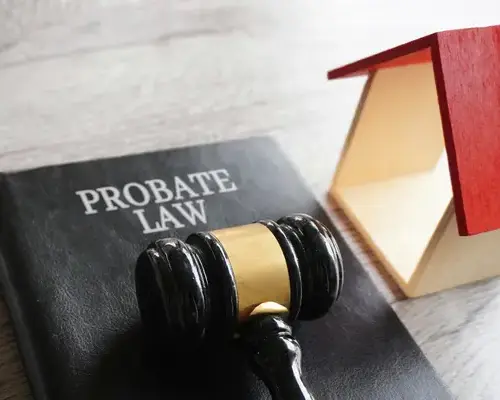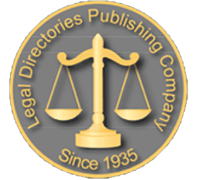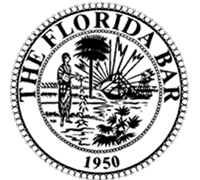Orlando Florida Mortgages & Security Instruments Lawyers
A mortgage is a type of loan that is secured by the real estate property the buyer purchased. Home buyers will often seek mortgages from banks, but business owners looking to purchase buildings or property will sometimes seek mortgages from other businesses, companies, entities, or investors. Sometimes family members lend money to other family members to assist them with the purchase of a house. In some cases, sellers might even finance the purchase of a home. This is known as “seller financing.” When you take out a mortgage with a bank, the bank will draft up all the documents, including the promissory note for the loan and the mortgage documents. But, if you are lending money from a family member, friend, company, or other entity, a mortgage contract may be necessary to protect the lender and the buyer. When investing in real estate and getting a loan for real estate, it is important that you make the relationship between a lender and yourself clear. After all, you don’t want a lender to later claim a mortgage was a partnership. Furthermore, if you are lending money to another company or person to purchase real estate, you’ll want to make sure that your money is repaid. A mortgage can make your loan more secure by backing it with property. If you are planning to sign a mortgage or if you are planning to lend money to another person or party, you’ll want to have a sound mortgage contract in place. Legal Counsel, P.A. employs Mortgage and Security Instrument lawyers in Orlando, Florida to assist you in drafting a mortgage contract. Have questions? We have answers. Contact Legal Counsel, P.A. today at 407-982-4321.
Understanding Your Mortgage Contract
When you sign your mortgage documents, you’ll be signing several documents including a Mortgage document and a Promissory Note. The Promissory Note is essentially your IOU to the bank or to the party issuing your mortgage. It is your promise to pay the loan. The Mortgage is the security instrument that gives your lender a right to the property if for some reason you cannot pay your loan. If you cannot pay your loan, the Mortgage is the document that lets the bank foreclose on your house.
Mortgages can be structured in two ways. In a mortgage, the lender has a lien on the property that allows the lender to foreclose in the event of non-payment. With a mortgage, should the bank take your house into foreclosure, you have the right to make a case against foreclosure at court. Another way a mortgage can be structured is through a deed of trust, where a third party holds the lien. If you don’t pay the loan, the third party, a trustee, can put your house up for sale.
When signing a Mortgage and Promissory Note, you’ll want to make sure the principal you are borrowing, the interest rate and the time to repay the loan is correct. Generally, mortgages can be 15-year mortgages or 30-year mortgages. A 15-year mortgage will cost you less in interest, but will require you to pay more each month. A 30-year mortgage will cost you more in interest, but will require you to pay less each month. You’ll also want to look at the interest rate, to make sure it matches the rate the bank or other party quoted to you. Watch for variable interest rates because these can change how much you may have to pay each month. Take a close look at when payments are due on your loan and if there is any grace period. If you are taking out a mortgage for the first time, or plan to take out a mortgage for your business, consider speaking to mortgage and security instrument lawyers at Legal Counsel, P.A. in Orlando, Florida. While banks generally use standard forms, private lenders and businesses may use template forms or may miss important details. A mortgage is a long-term obligation. Make sure everything is correct by speaking to our attorneys at Legal Counsel, P.A. in Orlando, Florida today. Have questions? We have answers. Contact Legal Counsel, P.A. today at 407-982-4321.
Seller Financing, Private Financing, and the Importance of a Strong Mortgage Contract
Buyers can borrow money for a home through means other than a bank. In some cases, the seller or owner of a home may even finance a sale. In this case, the seller or homeowner provides the money to the buyer to purchase the house or property and the buyer will pay back the homeowner. In other instances, a business looking to purchase real estate may seek a mortgage from other businesses or from investors. If you plan to provide money to another person, company, or entity to purchase real estate, you’ll want to have a sound mortgage contract in place. The mortgage contract will include a promissory note, a mortgage or security instrument on the property, and also contain specific information about the parties entering into the mortgage, the amount of money being lent, the interest rate to be paid, the term of the mortgage, due dates for payments, and any penalties the borrower might face for non-payment. While it might be tempting to use a boilerplate contract from the internet or use a template, when lending significant amounts of money to another party, it is better to take out the guesswork and have a professional look over your contract. Contact Legal Counsel, P.A. and our mortgage and security instrument lawyers in Orlando, Florida can review your contracts and protect your interests when lending money for property or land. Have questions? We have answers. Contact Legal Counsel, P.A. today at 407-982-4321.














